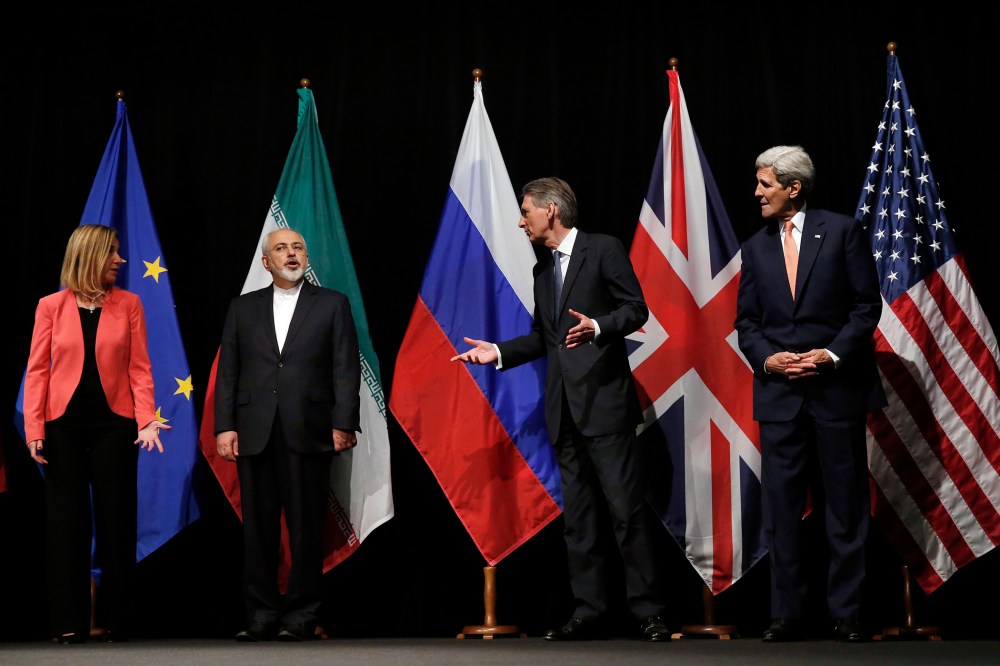The historic accord to close off Iran’s pathways to a nuclear bomb is an enormous win for U.S. national security and President Obama. In the coming weeks, I plan to vote in support of this landmark achievement and urge my colleagues to do the same.
I witnessed firsthand the transformative power of diplomacy as ambassador to Switzerland and Liechtenstein. I commend our diplomats for skillfully averting a global showdown with Iran as part of a deal that blocks its efforts to obtain a nuclear weapon.
Related: Obama: Deal makes world ‘safer’
Thanks to the Obama administration’s negotiations, Iran’s nuclear program will be under lock, key and camera 24 hours a day, 365 days a year. The eyes of the international community are on every centrifuge, every ounce of uranium, in all of Iran’s nuclear facilities. Inspectors have “when needed, where needed” inspection rights to any Iranian military site suspected of being involved in the nuclear program.
During my tenure as ambassador to Switzerland, Iran demanded a good deal of my attention. Switzerland has a unique role in our relationship with Iran and in this debate, as the Swiss government has served as the “protecting power” of the United States. Because we have not had formalized diplomatic relations with Iran since 1980, Switzerland represents Washington’s interests in Tehran.
In more recent years, Switzerland regularly hosted negotiations between Iran and the so-called P5+1 countries and Germany. Diplomats from these six world powers concluded the primary agreement with Iran, known as the Joint Plan of Action (JPOA), in Geneva in November 2013.
We can already see the stunning successes of this preliminary agreement. Under the JPOA, the number of inspectors on the ground monitoring Iran’s nuclear sites nearly doubled. Our diplomats have done more to restrain Iran’s nuclear program in the last two years than we saw in the previous two decades when the Iranian nuclear program continued to expand unchecked.
The deal reached in Vienna goes much, much further. Iran will no longer be able to make any uranium or plutonium for a bomb. Iran agrees to rip out a critical two-thirds of its centrifuges under this comprehensive agreement. Sanctions will only be lifted after international inspections verify that Iran is in full compliance. If Iran were to cheat, sanctions will snap back into place. And even if Iran fulfills all of its nuclear commitments, U.S. sanctions on Iranian sponsored terrorism, human rights abuses and ballistic missiles would remain in place.
RELATED: Obama will veto any legislation that prevents Iran deal
Contrary to a common erroneous claim, this is no 10-year deal. Col. Richard Klass, a combat veteran of the U.S. Air Force and vice chairman of the Center for Arms Control and Non-Proliferation, described the deal as a “carefully crafted series of restrictions with varying timelines that offers the best chance for preventing Iran from accumulating a nuclear arsenal.” The timelines of some of these restrictions will last for a quarter century.











